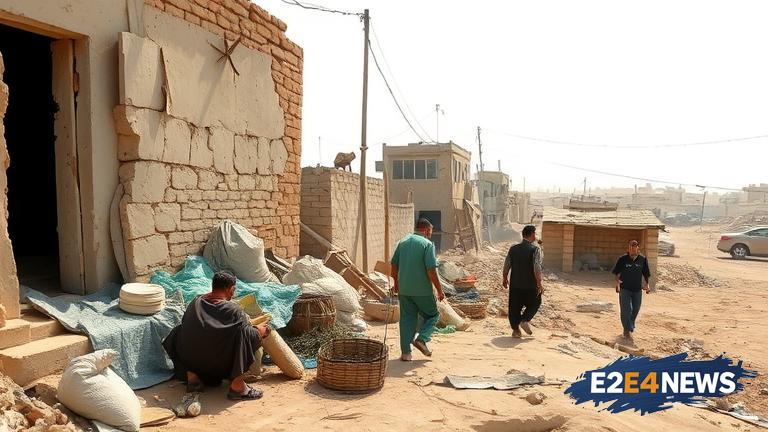The Gaza Strip, a coastal region in the Middle East, has been embroiled in a longstanding conflict that has left its residents struggling to survive. The day-to-day effort to find food and stay alive has become a daunting task for many Gazans. With limited access to basic necessities like food, water, and healthcare, the situation has become increasingly dire. The Israeli blockade, which has been in place since 2007, has severely restricted the flow of goods and people into and out of the Gaza Strip, exacerbating the humanitarian crisis. As a result, many Gazans are forced to rely on international aid and limited local resources to get by. The struggle to find food is a daily challenge, with many residents relying on meager rations and makeshift meals. The lack of access to clean water and sanitation has also led to the spread of diseases, further complicating the situation. The psychological toll of living in a war zone should not be underestimated, with many Gazans suffering from anxiety, depression, and post-traumatic stress disorder. Despite the challenges, many Gazans have shown remarkable resilience and resourcefulness in the face of adversity. Some have turned to innovative solutions, such as rooftop gardens and makeshift greenhouses, to grow their own food. Others have formed community organizations and support groups to help one another cope with the crisis. However, the situation remains precarious, and the need for a lasting solution to the conflict is more pressing than ever. The international community has a critical role to play in addressing the humanitarian crisis in the Gaza Strip, and it is imperative that world leaders work towards a peaceful resolution to the conflict. The people of Gaza deserve to live in dignity and safety, with access to the basic necessities of life. The ongoing crisis has also had a disproportionate impact on vulnerable populations, including women, children, and the elderly. It is essential that these groups receive targeted support and protection to ensure their safety and well-being. Furthermore, the crisis in the Gaza Strip has significant regional and global implications, and it is crucial that the international community takes a comprehensive and coordinated approach to addressing the situation. This includes providing humanitarian aid, promoting economic development, and supporting efforts to resolve the conflict peacefully. In addition, it is essential to address the root causes of the crisis, including the Israeli blockade and the lack of a negotiated settlement to the conflict. Ultimately, a lasting solution to the crisis in the Gaza Strip will require a commitment to peace, justice, and human rights. The people of Gaza deserve nothing less, and it is the responsibility of the international community to ensure that their rights are respected and protected. The situation in the Gaza Strip is a stark reminder of the devastating consequences of conflict and the importance of working towards a more just and peaceful world. As the international community continues to grapple with the challenges of the 21st century, it is essential that we prioritize the needs and rights of the most vulnerable populations, including those living in the Gaza Strip. By working together, we can build a brighter future for all, one that is characterized by peace, dignity, and respect for human rights. The crisis in the Gaza Strip is a complex and multifaceted issue, and it will require a sustained and collective effort to resolve. However, with determination, compassion, and a commitment to justice, we can create a better future for the people of Gaza and for the world at large.
